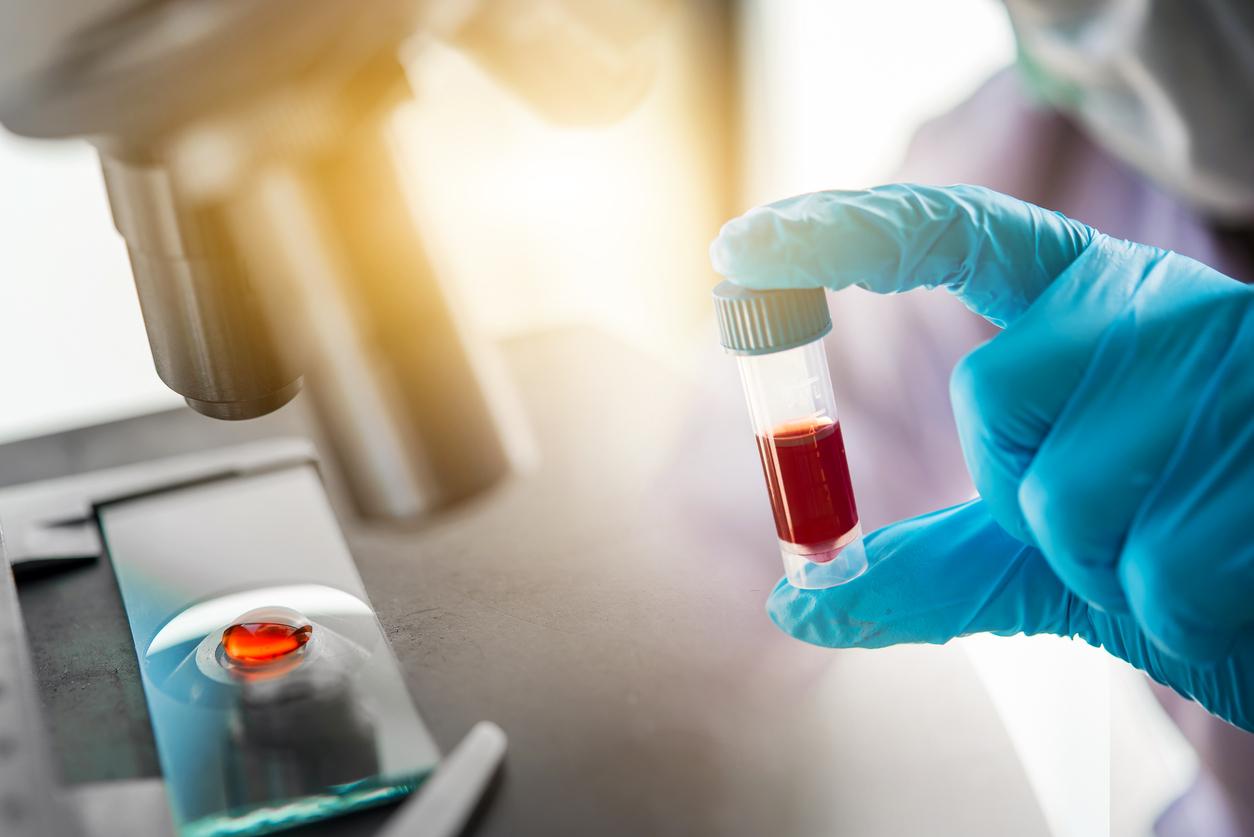Research is advancing in the development of a new test that can quickly detect pancreatic cancer biomarkers in a single drop of blood.

Because it’s usually not discovered early enough, pancreatic cancer is one of the deadliest. New blood tests developed by various groups of researchers aim to detect the disease earlier. A step has just been taken in this direction by Swedish researchers, whose study was made public this week in the Journal of Clinical Oncology.
Scientists analyzed blood samples from over 300 patients with pancreatic cancer at different stages. They then compared them to those of 800 healthy people. “Our test can detect stage I or II pancreatic cancer with an efficiency of 96%, when it is not yet too late to perform surgery”, explains Prof. Carl Borrebaeck, immunologist and co-author of the study.
Very good sensitivity
With very good sensitivity, this new test can therefore quickly detect biomarkers of pancreatic cancer in a single drop of blood. “We envision that in the future, doctors could perform this type of test to detect patients who do not yet know that they have the disease”, welcomed last May the scientist Jean Lewis, author of another study on the matter.
Blood tests for the early detection of cancer, known as liquid biopsies, are a major issue in the world of research. Jean Lewis’ team has developed an electronic process that extracts exosomes (vehicle for the transport and expulsion of cellular components, Editor’s note) directly from the blood, without it being processed, as it is. is currently the case. “The advantage is to be able to analyze the exosomes on site and see if they are carriers of the cancer biomarkers that the healthcare professional is looking for”, explains the scientist.
Primary screening strategy
The blood test is also portable, inexpensive, and takes less than an hour. “This test could be used as a primary screening strategy to identify patients who should subsequently undergo more expensive and more invasive diagnostic methods such as computed tomography, MRI or endoscopy,” concludes Dr. Rebekah White, oncologist at Moores Cancer Center.
All the researchers specify that further research is needed to complete this blood test, in particular to find out how far it is possible to trace the diagnosis of pancreatic cancer.

.

















